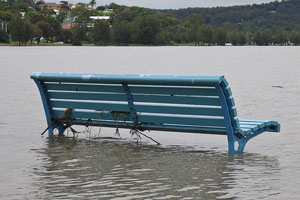World leaders passed two major milestones in the pursuit of an international climate treaty to succeed the Kyoto Protocol over the weekend, both without resolving any of the major areas of disagreement before their final meeting of 2009 in Copenhagen.
The finance ministers of the G20 nations met over the weekend for a summit that was supposed to produce plans for financing climate change adaptation and mitigation in the developing world. And last week there were key meetings in Barcelona as part of the United Nations Framework Convention on Climate Change, the last meeting of the working groups ahead of the Copenhagen summit, which begins Dec. 7. Unfortunately, neither event produced the much needed progress.
Finance ministers were unable to come to a deal, as Reuters reports that “talks got bogged down in a row with large developing countries about who should foot the bill.” The United Kingdom, which hosted the meeting, wanted to reach a deal to provide $100 billion to cover the costs of climate change in the developing world up until 2020. But in the end, they could only agree “to increase significantly and urgently the scale and predictability of finance to implement an ambitious international agreement.”
The statement is not very specific, and it’s not the kind of commitment that developing countries are saying is necessary to ensure their participation in a deal. Leaders promised a real agreement on financing would come at this meeting at their last summit in Pittsburgh in September, and securing an assistance package was seen as a crucial step ahead of the December meeting.
The meetings in Barcelona weren’t much better. Talks ended in a stalemate, with US negotiators unwilling (and, frankly, unable, given the ongoing Senate debate) to offer concrete emissions reductions targets and downplaying hopes for a deal this year.
Developing nations didn’t take the delay sitting down. On Tuesday, delgates from 50 African nations walked out in protest of rich nations’ unwillingness to commit. Talks resumed after a day-long boycott, but in the end the African bloc called the goals from developed nations “unacceptable” and demanded least 40 percent cuts below 1990 levels by 2020. The rest of the developing world, known as the Group of 77, maintained that the US and rich nations were repeating empty rhetoric rather than making meaningful commitments to curbing emissions.
“Non-performance, non-deliverance and non-commitment by the developed countries is acting as a brake for any meaningful progress,” said Sudanese delegate Lumumba Di-Aping, whose country currently chairs the G77. “We need a real change of heart and mind by the developed countries.”










